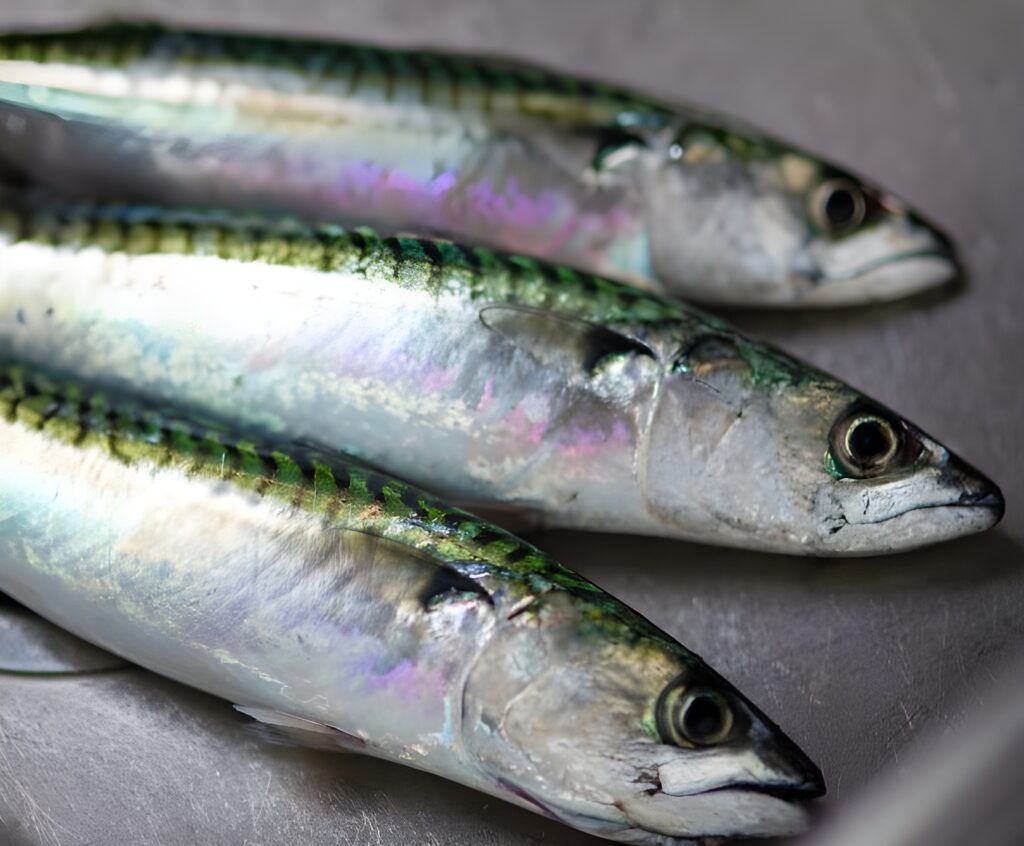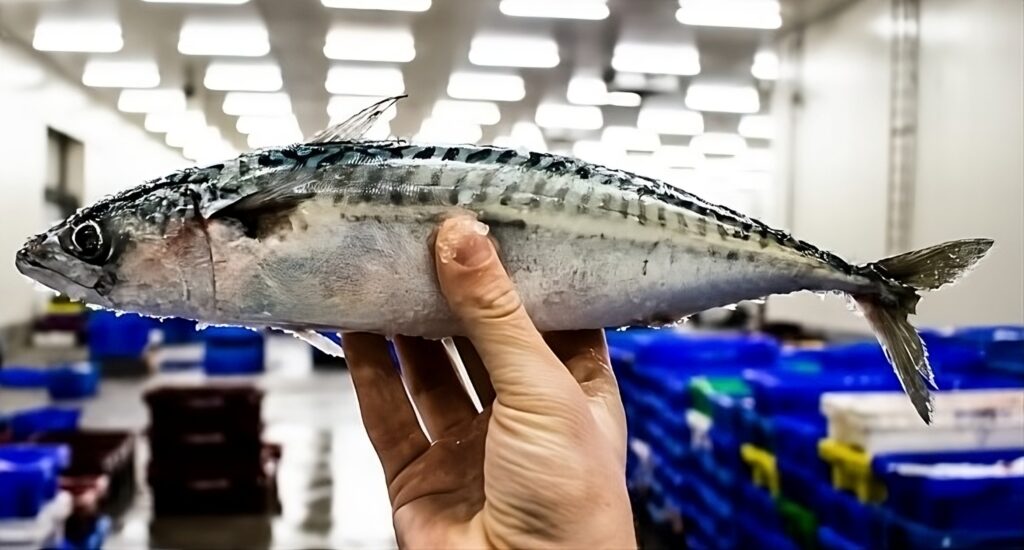Fish is a top choice on my menu. Packed with omega-3 fatty acids, it’s a powerhouse of health benefits. As a nutritionist and weight loss coach, I swear by the importance of omega-3s for your well-being.
Essential fats play a vital role in maintaining optimal well-being. Extensively researched, these healthy fats have demonstrated numerous benefits for heart health, brain function, inflammation reduction, and mood regulation.
There are three primary types of omega-3 fatty acids.
- Alpha-linolenic acid (ALA)
- Eicosapentaenoic acid (EPA)
- Docosahexaenoic acid (DHA)
Table of Contents
ALA is predominantly found in plant-based sources like flaxseeds, chia seeds, and walnuts. EPA and DHA, however, are mainly present in fish.
EPA and DHA, the omega-3 powerhouses, are known for their remarkable ability to fight inflammation and boost brain health. Make sure to include fish rich in these essential nutrients in your diet regularly for optimal well-being.

Why Fish?
Comparison with Other Food Sources
Flaxseeds and chia seeds contain ALA, a precursor that the body converts into EPA and DHA for utilization. Conversely, fish provide EPA and DHA directly, which are readily absorbed and utilized by the body.
Health Benefits
Consuming fish high in omega-3 has been associated with numerous health benefits.
Heart Health
Unleash the incredible benefits of omega-3 found in fatty fish such as salmon and mackerel. This powerhouse nutrient fights inflammation, lowers blood pressure, reduces triglycerides, and keeps your arteries clear. Don’t miss out on including omega-3 in your diet for optimal health.
Brain Function
DHA plays a vital role in brain development and function throughout life, potentially enhancing cognitive function and safeguarding against age-related cognitive decline.
Eye Health
It is abundant in the retina of the eye, supporting overall eye health.
Reduced Inflammation
Omega-3 possesses anti-inflammatory properties that can alleviate symptoms of inflammatory conditions like arthritis.
Mental Health
Studies show that omega-3 can alleviate depression and anxiety symptoms.
Bioavailability
One key advantage that sets fish apart is its bioavailability – how easily our bodies can absorb nutrients. The EPA and DHA present in fish are readily absorbed compared to ALA from plants, ensuring optimal utilization within our cells.
Healthiest Fish for Your Diet
Let’s explore the top fish that are packed with these essential healthy fats. Our top picks include salmon, sardines, mackerel, tuna, anchovies, and herring.
508 Unique Compounds in Salmon
Cutting-edge research has revealed more than 500 unique compounds in salmon, solidifying its status as the ultimate superfood of the sea. Packed with 237 special metabolites, this fatty fish is a powerhouse of health benefits waiting to be unleashed.
The research highlighted the high levels of omega-3 fats and essential nutrients found in salmon, making it a top recommendation for those seeking to boost their heart health and overall nutrition.
Salmon is a nutritional powerhouse, providing 121 calories, 17g of protein, and 5.4g of healthy fats. It’s low in sodium at only 37.4mg per serving. With no carbs or sugars, salmon is an ideal choice for increasing protein intake without extra carbohydrates. Packed with vital vitamins and minerals such as vitamin A, B vitamins, and vitamin D (especially in wild-caught varieties), salmon offers a complete package for a healthy diet.
Sardines
Sardines are full of nutrition, and packed with omega-3s, calcium, and vitamin D for strong bones. Just 5 small sardines provide 125 calories, 7g of fat (high in healthy omega-3s), and 14.8g of protein. They are also rich in iron, calcium, vitamin B12, and other essential vitamins and minerals.

Mackerel
Mackerel, a flavorful oily fish, is often compared to tuna for its firm flesh and popularity as a canned food. With 21 species available, Atlantic mackerel stands out as a favorite.
In just 100g of mackerel, you get a powerful punch of 189 calories and 19g of protein. This fish is bursting with healthy omega-3 fats: 3g saturated fat, 4.5g monounsaturated fat, and 2.9g polyunsaturated fat in every serving. It’s loaded with essential EPA and DHA fatty acids for optimal health. Different regions offer varying levels of fat content in this delectable fish.
Tuna
Tuna is loaded with vitamin D, with just 3 ounces providing up to half of your daily recommended intake. This essential nutrient is crucial for strong bones, a robust immune system, and healthy growth in kids.
Additionally, tuna is a great source of other important nutrients such as iron, vitamin B6, potassium, selenium, and iodine.
A 4-ounce serving of white tuna contains:
- Calories: 145
- Protein: 26.77 grams
- Fat: 3.37 grams
- Carbohydrates: 0 grams
- Fiber: 0 grams
- Sugar: 0 grams
To make a healthier choice, the FDA recommends eating light tuna two to three times a week and restricting white tuna consumption to once weekly because of its elevated mercury levels.
Pregnant women and young children should seek medical advice before consuming tuna because of its elevated mercury levels. Opt for canned tuna over fresh, as it contains lower mercury levels due to the use of smaller fish in the canning process.
Anchovies
Anchovies pack a powerful punch with omega-3 benefits, providing protein for energy and muscle support, along with vitamin B-12 for healthy blood cells. Dive into these nutrient-packed fish for a boost in overall health and vitality.
The USDA reports that anchovies pack a nutritional punch, with a 100-gram serving offering:
- 20.4 g protein
- 3.25 mg iron
- 0 mg carbohydrates
- 383 mg potassium
- 147 mg calcium
- .62 μg B-12
- 14 mg niacin
- 1.72 mg zinc
- 36.5 mg selenium
Herring
Herring has 20 grams of lean protein in just a 3-ounce serving. A perfect choice for fueling your body with high-quality nutrition.
Indulge in the rich nutrients of herring: Omega-3 fatty acids, Vitamin D, Selenium, and Iron. Enjoy a 3-ounce serving of grilled or baked herring for a flavorful burst and essential omega-3 benefits. With only 173 calories and 10 grams of fat, this fish is a powerhouse of protein with 20 grams per serving. Say yes to delicious health!
Key Factors to Consider
Selecting fish high in beneficial fats and nutrients requires a discerning eye for quality. Not all fish offer the same nutritional benefits, so it’s essential to know what to look for when making your choice. Prioritize freshness to fully enjoy the rich flavors and nutrients of the sea – seek out clear eyes, shiny skin, and a subtle ocean essence when buying fish.
Wild-Caught vs. Farm-Raised
Wild-caught fish boast higher levels of healthy fats thanks to their natural diet and active lifestyle in open waters. Some species may contain elevated levels of contaminants like mercury or PCBs due to environmental factors or farming methods. To support a healthy heart, opt for the freshest fish, whether wild-caught or farm-raised, based on your preference. Make a confident choice for your well-being.
Potential Risks and Considerations
Eating fish has amazing health perks, but don’t forget about the risks and other factors to weigh.
Mercury Content in Fish
Opt for salmon, trout, herring, and sardines to steer clear of mercury. Limit tuna and swordfish consumption because of their predatory nature.
Safe Consumption for Pregnant Women and Children
Pregnant women and young children should choose low-mercury options while still benefiting from omega-3 fatty acids. Follow specific guidelines recommended by the FDA for safe consumption during crucial stages of development.
Sustainable Fishing Practices
Choose seafood products with MSC or ASC certifications to champion responsible fishing practices and safeguard the environment. Opting for sustainable options not only helps preserve our oceans but also brings a plethora of health benefits when incorporating fish into your diet mindfully.
Be mindful of mercury levels and advocate for sustainability in the seafood industry. Improve your well-being with every bite! Consult a healthcare professional or registered dietitian for personalized advice on meeting your dietary needs. They will provide tailored guidance based on your unique circumstances.
Expert Tips for Cooking
Preparing fish is a culinary art that requires finesse and knowledge. To make the most of these nutritious seafood options, here are some expert tips to ensure you retain their valuable omega-3 content while enhancing their natural flavors.
Opt for Cooking Methods That Preserve Omega-3 Content
Grilling fish locks in rich oils and flavors. Brush with olive oil before grilling to prevent sticking. Baking is a healthy option, keeping fats at bay. Wrap fish in foil with herbs for added flavor. Steam seasoned fish over boiling water for a gentle cooking method that preserves moisture and nutrients.
Avoid Deep-Frying or Overcooking
High-temperature cooking can strip fish of nutrients and make it dry. To keep the taste and texture at their best, cook fish until it reaches 145°F (63°C) internally. Frying is the worst for healthy omega-3 fatty acids, with a study revealing a 70–85% decrease in beneficial omega-3s when frying tuna.
Elevate Flavors Naturally
Elevate your dish with the bold flavors of dill, parsley, or cilantro. Give it a tangy boost with a squeeze of lemon juice right before serving. Get creative with spice mixes like paprika, cumin, or turmeric for exciting new tastes.
Pair with Nutrient-Rich Side Dishes
Enhance your meal of the healthiest fish with nutrient-packed sides like steamed vegetables, quinoa, or a colorful salad.
Boost your intake of essential omega-3 fatty acids by incorporating heart-healthy ingredients like avocado, walnuts, or flaxseeds. These foods are rich in healthy fats that can help support your heart health and overall well-being.
Delicious Fish Recipes
Savor succulent dishes such as Grilled Salmon with Zesty Lemon and Fresh Dill or Herb-Infused Baked Mackerel – bursting with flavor and essential nutrients. Mastering the art of cooking is crucial. By employing methods that retain the omega-packed seafood’s nutritional goodness and elevate its innate tastes, you’ll relish delectable meals while reaping their full health advantages.

Where to Find the Healthiest Fish
Local Fish Markets
Find the freshest and healthiest fish at your local fish market. They focus on sustainability and offer a wide range of species sourced directly from trusted suppliers or fishermen.
Online Retailers
In the digital age, easily purchase fresh fish online from top retailers who deliver directly to your door. Check out reviews and packaging for guaranteed quality. Analysts predict a challenging future for fresh seafood sales in 2024 due to economic concerns, but prepared seafood items are expected to see growth.
Despite a 5.7% decline in fresh seafood sales and a 7% drop in volume in November compared to 2022, research firm Circana reports that the category still brought in $417 million in sales that month and $6.3 billion for the year ending Nov. 26.
Farmers’ Markets
Support your local fishermen by browsing through farmers’ markets where vendors showcase freshly caught, sustainably sourced seafood. Dive into the freshest and healthiest choices while also contributing to the growth of your community’s economy.
Seafood Allergies or Dietary Restrictions
Don’t be held back by seafood allergies! Discover tasty alternatives to still get your omega-3s and stay healthy. Over 6.6 million Americans deal with this issue, but you don’t have to miss out on the benefits of essential fats.
Plant-Based Alternatives
Flaxseeds
Boost your breakfast with the versatile power of ground flaxseeds. Sprinkle them in smoothies or oatmeal for a nutritious kick, or use them as a plant-based egg substitute in your favorite baked goods. Elevate your meals with this superfood secret weapon!
Chia Seeds
Sprinkle chia seeds on yogurt parfaits, make chia seed puddings, or top off salads for an added boost.
Walnuts
Enjoy the satisfying crunch of walnuts as a nutritious addition to salads, oatmeal, or baked goods.
Hemp Seeds
Enhance your meals by sprinkling hemp seeds on salads, blending them into smoothies, or using them as a delicious topping for avocado toast. Elevate your dishes with the nutty flavor and nutritional benefits of these versatile seeds.
Omega-3 Supplements
If getting enough omega-3s from food sources proves difficult due to allergies or restrictions, supplements may be worth exploring. Vegetarian options like algae-based supplements offer DHA and EPA without the fishy concerns.
Research shows that taking long-chain omega-3 supplements can help shrink and improve the build-up of plaque in arteries. Studies indicate that giving high-risk patients EPA/DHA soon after a heart attack or in high doses reduces the chances of heart disease events or death.
Gwendolyn Moore
Registered Dietitian
About Me – Nutrition by Gwen Consulting
Loma Linda University
https://twitter.com/nutritionbygwen?lang=en